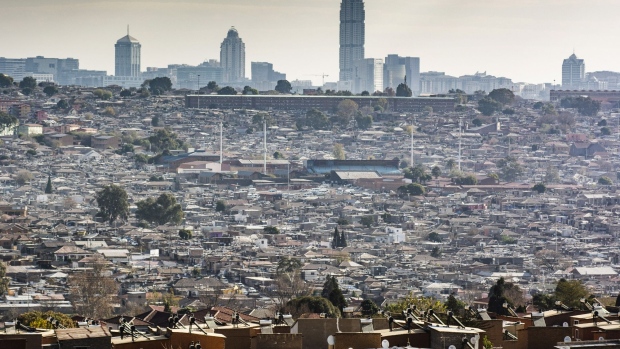Jul 14, 2020
South African Township Taverns Face Ruin From Second Booze Ban
, Bloomberg News

(Bloomberg) --
South Africa’s latest ban on alcohol sales is likely to force 35,000 bar owners in the poorest communities into bankruptcy, according to industry bodies representing the country’s biggest drink makers.
The decision to abruptly prohibit the retail of booze for a second time since March is aimed at reducing alcohol-related hospital admissions while surging coronavirus cases put a strain on emergency wards. Still, the economic fallout could be severe, groups including the National Liquor Traders Council and the Beer Association of South Africa said in a statement.
South Africa’s government lifted a more than two-month restriction on alcohol sales at the start of June, following discussions with the industry over opening hours and safety measures. Pub owners in so-called townships were allowed to convert into drink retail outlets as part of the agreement. However, the latest ban announced by President Cyril Ramaphosa came without consultation with the industry or a warning, leaving retailers with stock they can’t legally sell.
“The government’s decision has serious economic consequences, placing hundreds of thousands of livelihoods at risk,” said the industry bodies, which count Anheuser-Busch InBev NV, Heineken NV and Distell Group Holdings Ltd. among their members. “The hardest hit will be the significant number of smaller retailers and taverners.”
The liquor industry lost more than 117,000 jobs as a result of the initial ban and 18 billion rand ($1.1 billion) in revenue, they said.
Coronavirus infections in South Africa have surged since lockdown restrictions were eased last month to allow millions of people to return to work. In defense of the government’s decision, the Department of Health released a report Tuesday that showed stricter lockdown regulations and the earlier alcohol ban reduced the number of trauma cases by as much as half.
Preventing township bars from selling alcohol pushes residents to travel long distances to get illicit booze, the industry bodies said. The ruling also increases security risks, with several liquor stores looted during the first phases of lockdown.
©2020 Bloomberg L.P.






